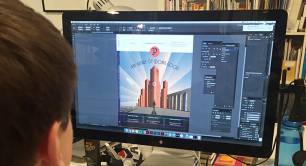It’s time for social enterprise railways and here’s why
Imagine if the train company you used put people and positive social/environmental impact at the core of the business...
Britain’s railways are very much at the heart of our country. They’ve transformed our way of life. Through the years of fragmented, privately run lines, to state ownership, the massive closures of the 1960s Beeching cuts and then back to privatisation, the railways have been through much upheaval.
But through all the many changes in new technologies, ownership models, tragedies and successes, one factor has remained at the heart of our rail system – the lack of democracy.
You may think this means nationalisation. With the old British Rail, state owned trains were directed by and accountable to elected politicians. Perhaps we should bring that back? Or perhaps the dynamic business model of shareholder ownership is the way forward. Anyone can buy shares, right?
However, neither of these options works in the real world. Through decades of transformation, the voice of rail employees and the public has remained at the sidelines. This is bizarre. The actual experts – passengers and workers – have little say in running our railways.
Privatisation of Britain’s railways has not been successful. Public support for ‘public ownership’ is consistently high. A small number of people have become wealthy because of privatisation and vast sums of taxpayers’ money is still being used to subsidise private companies. Shareholder profiteering of public transport can never work in the public interest.
So what about the great British Rail? In later years the financially starved and creaking rolling stock meant that it was not so great. A 1970s, centralised, top-down system lacked dynamism. Of course, in preparation for privatisation, public services are deliberately underfunded. However, British Rail was never owned by the public, it was owned by the state. These are not the same thing.
In Scotland and elsewhere our railways have been in the media for all the wrong reasons. Cancelled trains and broken ticket machines don’t build confidence in operators like Scotland’s Abellio ScotRail. However, it’s easy to attack without understanding the complex issues they deal with – and without suggesting alternatives.
Of course the supreme irony is that while Scotland’s trains are privatised, they are run by a Dutch government company, with profits going back to their public coffers. Perhaps we should be pleased that our fellow Europeans are benefiting from our train tickets to Glasgow and Inverness.
So what other options are there? Contrary to political debate, these are unlimited. Unfortunately, policy chatter about public services only ever remains within a narrow window of privatisation vs. the state. We need to get off that hamster wheel. We need some imagination.
The Scottish government is currently weighing up options, including a public sector bid. The ScotRail franchise reaches the half-way point in 2018. There is scope for a review but UK Government legislation means that there must still be an open tender when the contract ends.
So what could that alternative look like? Scotland’s railways could be transformed into a new, national social enterprise, owned by the community – by the people. This would have strong public support, a vote winner for any political party.
We should of course have a first class rail network for everyone. This would mean rail passengers on the company board and no private shareholders. The company should be democratic, a business managed by employees, with elected directors, getting rid of top-down centralisation.
It’s certainly vital that we have a financially sustainable company – a profitable, independent and responsive business and a partnership of both public and social investment. Train fares from paying customers plus public funding would be needed (as is currently the case with subsidies to the private sector operators).
It should be an integrated company too, one that runs both track and trains. This level of integration, flexibility and democratic accountability would ensure a smoother running service. It would dramatically reduce wasteful duplication and also reduce confusion for rail passengers.
The company should be ethical, with a specific remit to put people and positive social/environmental impact at the core of the business. It would be rooted in local communities and work in genuine partnership with other social enterprises.
If we took forward these core, guiding principles we could have a much improved railway. We would also have a brilliant, new social enterprise. Now is the right time to build a social enterprise rail service for Scotland – and indeed right across the UK.



